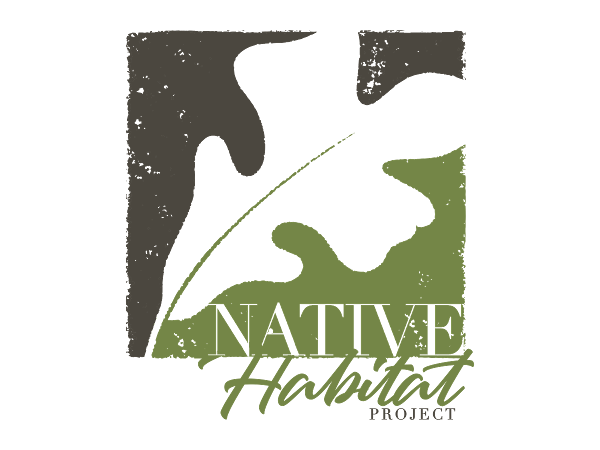We Support
EcoLogic is proud to uphold the legacy of making positive changes for Earth and its people alongside our peers that are advancing ecological regeneration locally, nationally and globally.
Some of the organizations who inspire us are:
The Georgia Native Plant Society (GNPS) is a nonprofit organization that is dedicated to the promotion, stewardship and conservation of Georgia’s native plants and habitats.
Intown GNPs
The Intown Atlanta Chapter of the GNPS focuses on native plant species and ecosystem issues in the Atlanta region of Georgia.
Birds Georgia builds places where birds and people thrive through conservation, education, and community engagement.
Their vision is a conservation-minded and fully engaged Georgia where birds prosper, habitats flourish, and understanding grows.
They approach their work through conservation, education, and community engagement.
The West Atlanta Watershed Alliance (WAWA) is a community-based non-profit organization whose mission is to improve the quality of life within the West Atlanta Watershed by protecting, preserving and restoring our community’s natural resources. WAWA represents African American neighborhoods in Northwest and Southwest Atlanta that are most inundated with environmental stressors, but are least represented at environmental decision-making tables.
The Amphibian Foundation is dedicated to connecting individuals, communities and organizations in order to create and implement lasting solutions to the global amphibian extinction crisis.
They provide unique educational opportunities for all ages to learn about amphibians and inspire conservation.
Park Pride believes in the power of parks, and they help neighborhood groups make the best use of greenspaces that contribute to the overall health and well-being of Atlanta.
Their mission is to engage communities to activate the power of parks, and their vision is an Atlanta where every neighborhood has access to a great park.
QuietGA (Georgia) aims to educate our communities about the health, noise, and environmental harms that gas-powered leaf blowers create and to raise awareness of quieter, healthier, greener alternatives.
Their focus is to develop and organize inclusive, local efforts that are directed toward phasing out obsolete, two-stroke gasoline powered lawn equipment and making our communities aware of the importance of “leaving the leaves” when possible.
Across the globe, centuries of unsustainable activities have damaged the aquatic, marine, and terrestrial environments that underpin our economies and societies. SER is dedicated to reversing this degradation and restoring the earth for the benefit of both humans and nature.
SER advances the science, practice and policy of ecological restoration to sustain biodiversity, improve resilience in a changing climate, and re-establish an ecologically healthy relationship between nature and culture.
Native Habitat Project’s goal is to promote the restoration and management of native ecosystems.
You can’t appreciate what you don’t know, so our number one priority is creating educational content that highlights the incredible value of our native ecosystems.
The Center for Plant Conservation (CPC) is a one-of-a-kind network, uniting plant conservationists from botanical gardens, arboretums, and other plant-focused organizations that collaboratively work to save the imperiled plants of the United States, its territories, and Canada, throughout their native range.
Based in Tifton, this organization of UGA’s mission is to serve a lead role in development, consolidation and dissemination of information and programs focused on invasive species, forest health, and natural and agricultural management through technology development, program implementation, training, applied research and public awareness at the state, regional, national and international levels.
The GSU Botanic Garden in Decatur demonstrates to the public the diversity and beauty of US native plants in Georgia gardens.
SE PCA works on bridging gaps between local and national plant conservation efforts and collaborating to prevent and restore the loss of plant diversity in the southeastern US.
Lady Bird Johnson Wildflower Center carry out their mission to inspire the conservation of native plants through their gardens, research, education, and outreach programs.
The Center for Urban Habitats in Virginia advances biodiversity education, conservation, and research in the Piedmont Ecoregion.
Homegrown National Park is a grassroots call-to-action to regenerate biodiversity and ecosystem function by planting native plants and creating new ecological networks.
The NWF’s main mission is to protect Earth’s natural resources for the betterment of all outdoor enthusiasts. Part of their ethics involve carrying out their sacred duties & obligations to protect & build upon the conservation of wildlife, ourselves, & future generations.
As one of the most enduring and influential grassroots environmental organizations in the United States (3.8 million members), the Sierra Club has protected and secured over 439 parks and monuments, aided in passing the Clean Air and Endangered Species Acts, & put over 281 coal plants on the path to replacement with clean energy.
The Xerces Society is a science-based conservation team of diverse scientists, land managers, educators, policymakers, farmers, and communities providing accessible educational resources and addressing policy implications & building community.
The SBG is free and open to the public in Athens, GA and provides a learning environment, inspiration and engagement through horticulture, conservation, science based programs and lasting partnerships.
SUGi is a global non-profit dedicated to biodiversity building, ecosystem restoration, and reconnecting people to nature through the creation of ultra-dense native forests in urban areas.





















